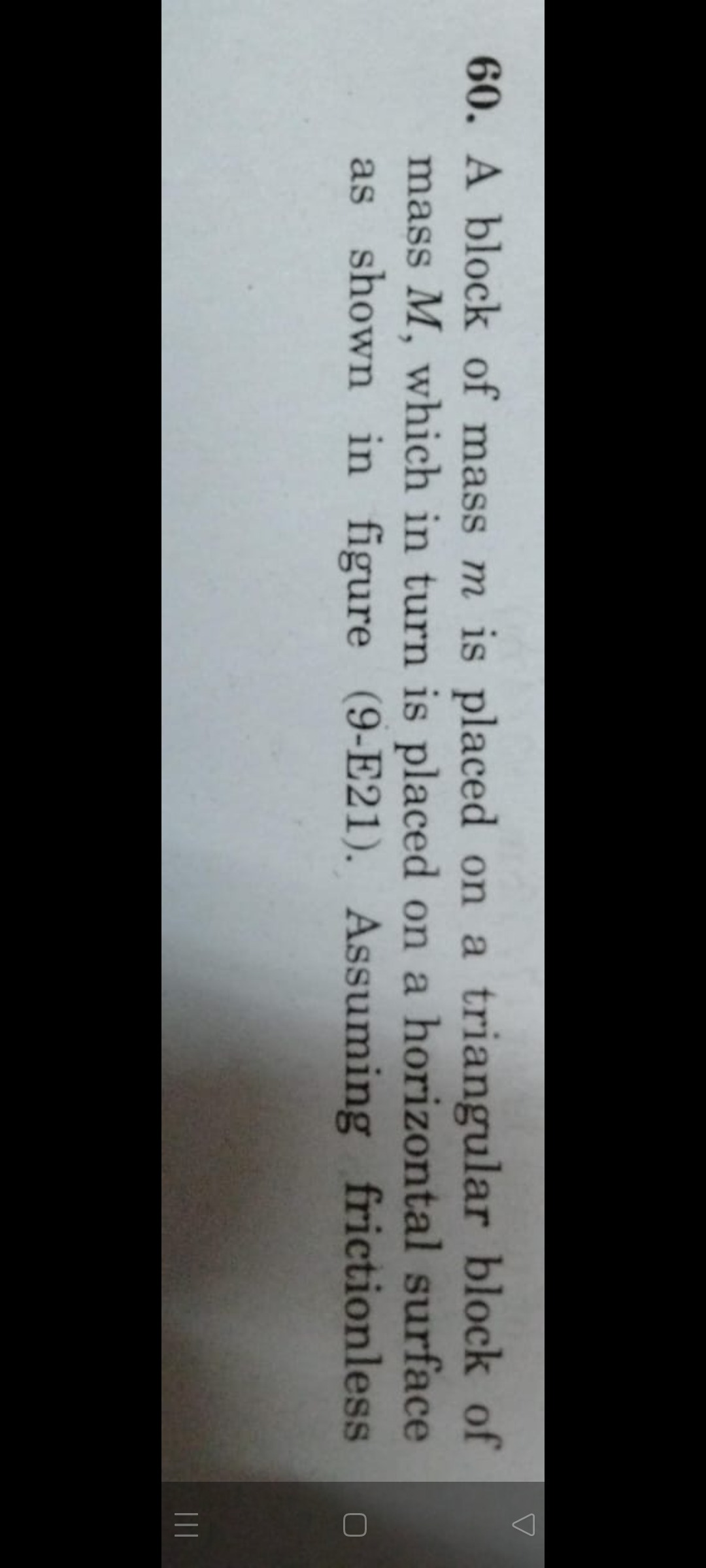Question
Question: A block of mass m is placed on a triangular block of mass M, which in turn is placed on a horizontal...
A block of mass m is placed on a triangular block of mass M, which in turn is placed on a horizontal surface as shown in

A
g
B
2g
C
3g
D
5g
Answer
3g
Explanation
Solution
To keep the block of mass m stationary relative to the wedge accelerating horizontally with acceleration a, the net force on the block in the frame of the wedge must be zero. In the inertial frame, the block has horizontal acceleration a and zero vertical acceleration. Resolving forces on the block (gravity mg and normal force N) in the inertial frame, the horizontal equation of motion is Nsinθ=ma and the vertical equation of motion is Ncosθ=mg. Dividing the first equation by the second gives tanθ=a/g, so a=gtanθ. Assuming the angle of inclination is 30∘, the required acceleration is a=gtan30∘=g/3.
